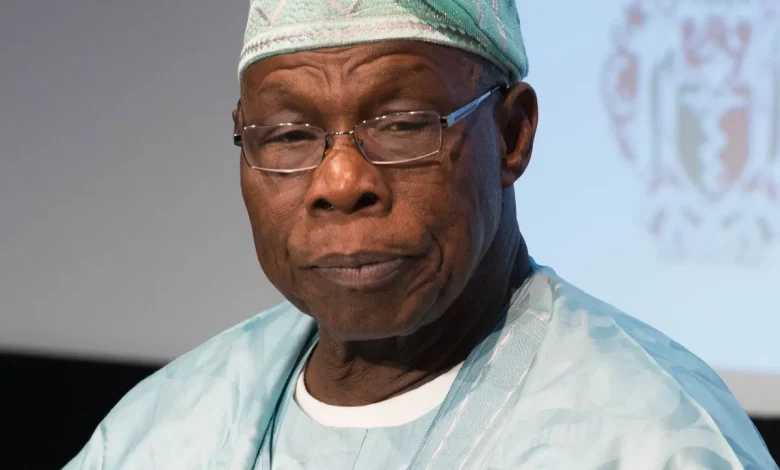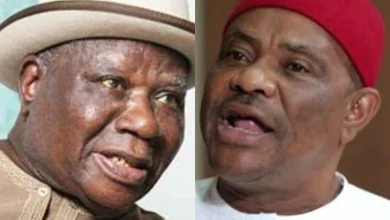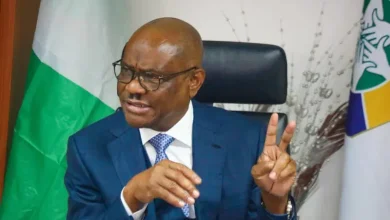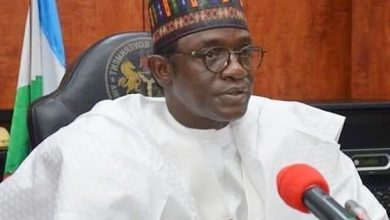$1billion Malabu Oil Deal: Ex-President Obasanjo Denies Agreement Relied Upon By Former Attorney-General Adoke, Others To Sell OPL 245 Licence
Adoke claims, albeit falsely, that Obasanjo sanctioned the out of court settlement.

The Nigerian government has again made fresh submissions before the London Commercial Court, where Nigeria is suing JP Morgan Chase Bank and established that former Attorney-General, Mohammed Bello Adoke, was complicit in the controversial sale of the OPL 245 oil bloc licence to Shell and Eni, despite the firm having no formal connection to the deal.
In its final written submission to the court, the Nigerian government referenced an interview granted by former president, Olusegun Obasanjo, where he emphatically denied knowledge of the much touted 2006 deal referenced by Adoke in supporting the out-of-court settlement between Malabu and Federal Government.
In 2006, Malabu lost a case instituted by the company to have the OPL245 license withdrawn by the government return to it.
That was all the country needed to take full control of the license after the earlier revocation via executive fiat.
This revocation and court decision by the Federal High Court was the position throughout the period ex-President, Umar Yar’adua, was in office but suddenly changed after Jonathan assumed office and Adoke appointed as Justice Minister.
Exposed!! Popular Abuja doctor revealed how men can naturally and permanently cure poor erection, quick ejaculation, small and shameful manhood without side effects. Even if you are hypertensive or diabetic . Stop the use of hard drugs for sex!! It kills!
The ministry under Adoke entered into a settlement agreement to return a licence lost through the court to Malabu, even without an appeal challenging the High Court decision delivered against Malabu. Adoke claims, albeit falsely, that Obasanjo sanctioned the out of court settlement.
According to the Nigerian government in its submission, “79. Third, JPM argues that it is a “fair inference” that the 2006 Settlement must have been considered and approved by the then-President, Olusegun Obasanjo, who is not accused in these proceedings of any wrongdoing. However, Mr Obasanjo himself has emphatically denied this. In a 2017 interview with the Nigerian Newspaper Premium Times, Mr Obasanjo said that he knew nothing about this deal and was not part of it; and would not have done so, because, he “could not have approved a deal with Dan Etete. What Etete did is the height of corruption. He appropriated the asset to himself illegally, illegitimately and immorally”. That is the approach that Mr Ojo (and Mr Adoke) should have taken to dealing with Etete – but of course, they did not.”
Obasanjo had granted an interview to deny the claims of his approval of an out-of-court settlement or have knowledge of it.
In the interview with Premium Times in 2017, the former President warned Adoke to cease further mention of his name in the controversial $1.1 billion Malabu Oil deal.
Obasanjo said he considered the controversial award of OPL 245 oil field licence as the “height of corruption,” and, as such, could not have participated in negotiations that led to it.
“I don’t support that kind of conduct,” he was quoted as saying.
His rebuttal came a day after Adoke distributed excerpts of a petition he sent to the Attorney-General of the Federation, Abubakar Malami, alleging victimisation and persecution by the Economic and Financial Crimes Commission (EFCC).
Adoke had told his successor to call the anti-graft agency to order because he was not the only official who acted on behalf of Nigeria in brokering the Malabu Oil deal with international oil majors that included Shell and Eni.
He specifically mentioned Obasanjo’s name, alongside his two successors and their appointees.
“I believe it is your responsibility to explain to the public who are being sold a fiction that the transaction started from President Olusegun Obasanjo, GCFR under whose administration the Terms of Settlement were brokered with Chief Bayo Ojo, SAN, as the then Attorney General who executed the Terms of Settlement before the tenure of President Goodluck Ebele Jonathan, GCFR who approved the final implementation of the Terms of Settlement and my humble self who executed the resolution agreements,” Adoke had said in the petition dated March 6.
“This is more so as the settlement and its implementation were situated in the Federal Ministry of Justice.”





